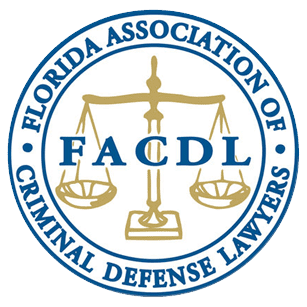Drug charges in Florida bring with them harsh punishments. From mandatory minimum prison sentences to strict probation terms, you will have to deal with a tough future if you are convicted of possessing, selling, creating, or distributing an illegal substance. Your position may be even scarier if the prosecutor charges you with committing one of these offenses within a drug-free zone (DFZ).
Prosecutors jump at the chance to increase the charges against a potential drug offender, particularly if you have a criminal record. If you are facing an enhanced offense and penalty due to Florida’s drug-free zone laws, you should contact a Sarasota drug crimes lawyer at Erika Valcarcel, Criminal Defense Lawyer, P.A. at (941) 363-7900. An experienced criminal defense attorney can help you build the strongest defense possible under the law.
Florida’s Drug-Free Zones
Under Florida Section 893.13, you are not allowed to sell, manufacture, deliver, or possess with the intent to do any of these actions, a controlled substance in, on, or within 1,000 feet of:
- A child care facility, which includes any child care center or arrangement that provides child care for more than five children unrelated to the operator and which receives payment for the children receiving care,
- A public or private elementary, middle, or secondary school between 6 a.m. and midnight,
- A public or private college, university or other post-secondary educational institution,
- A state, county, or municipal park,
- A community center, which includes a facility operated by a non-profit community-based organization that offers educational, social, or recreational services to the public,
- A publicly owned recreational facility,
- A church or location where a religious organization regularly conducts religious services,
- A public housing facility, or
- An assisted living facility.
If you are charged with possession with intent, selling, manufacturing, or delivering an illegal drug on the premises of one of these properties or within 1,000 feet of the border of one of these facility’s real property, then you will face a harsher sentence than you would have for committing this crime in another place. DFZs are used across the country to enhance the sentence for drug crimes committed in areas that are offered additional protection, usually due to the presence of children.
It will not matter to the prosecutor if you knew about this law or that you were near one of these places. A prosecutor will not have to prove knowledge of committing a crime in a DFZ or intent to do so, which makes it relatively easy for the prosecutor to charge you with a harsher drug offense that comes with a mandatory minimum prison sentence.
Enhanced Criminal Penalties for Offenses Within Drug-Free Zones
The sale, creation, delivery, or possession of an illegal drug is charged as a first-degree misdemeanor, third-degree felony, or second-degree felony depending on the type and amount of drug recovered. When the offense is committed on or within 1,000 feet of the listed facilities, then the crime is raised one degree, such as from a second-degree felony to a first-degree felony, and the offender faces an enhanced punishment. For example, selling cocaine is normally a second-degree felony, punishable by up to 15 years in prison. However, the sale of cocaine near an elementary school becomes a first-degree felony, punishable by up to 30 years in prison with a minimum sentence of three years.
Contact a Sarasota Drug Crimes Lawyer Today
If you have been charged with committing a drug offense within a drug-free zone, you could be looking at a harsh fine, years in prison, and strict probationary terms upon release. Instead of pleading guilty or taking a plea agreement without understanding your options, you should speak with an experienced drug crimes lawyer from Erika Valcarcel, Criminal Defense Lawyer, P.A..
Call today at (941) 363-7900 to schedule a consultation with a criminal defense attorney in Sarasota, FL.
View All Blogs

